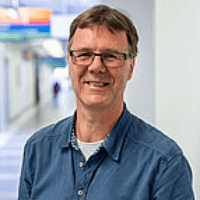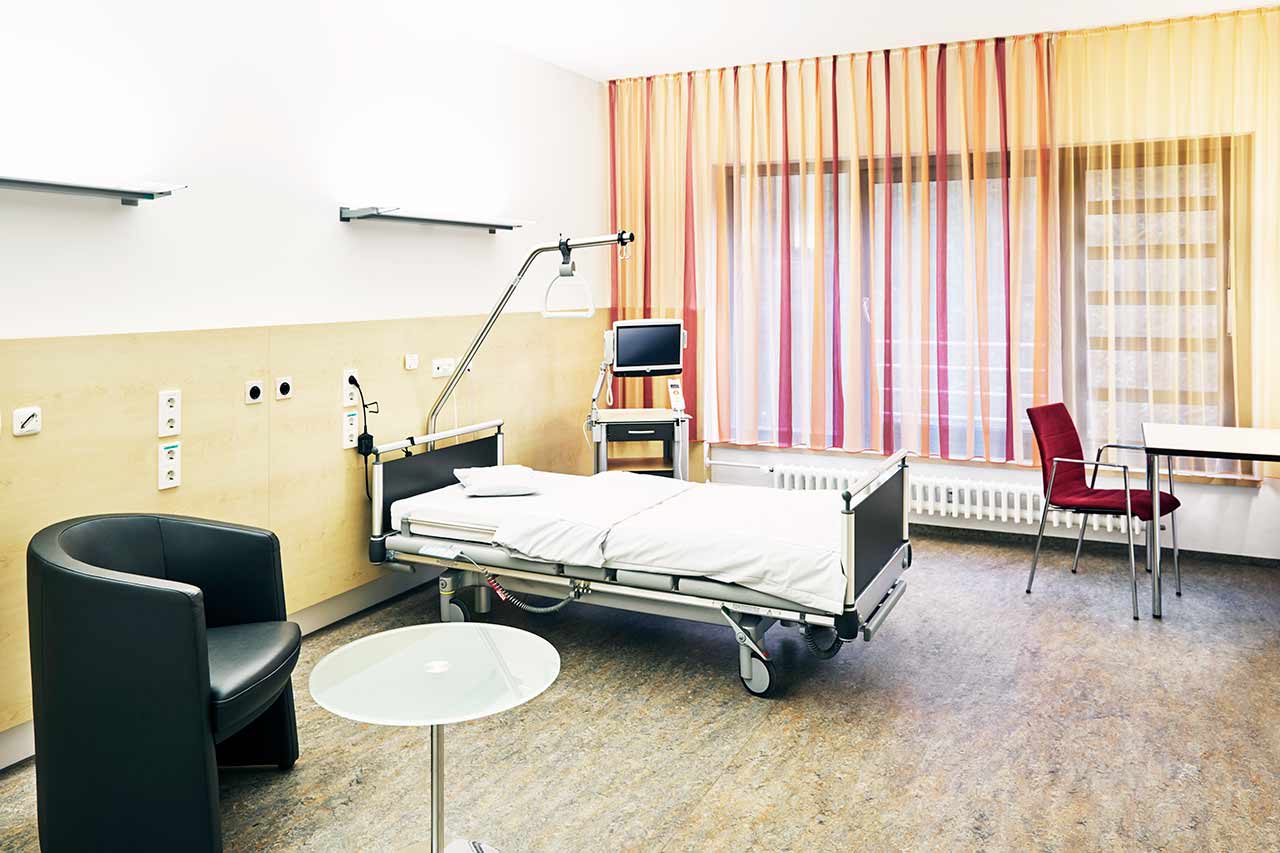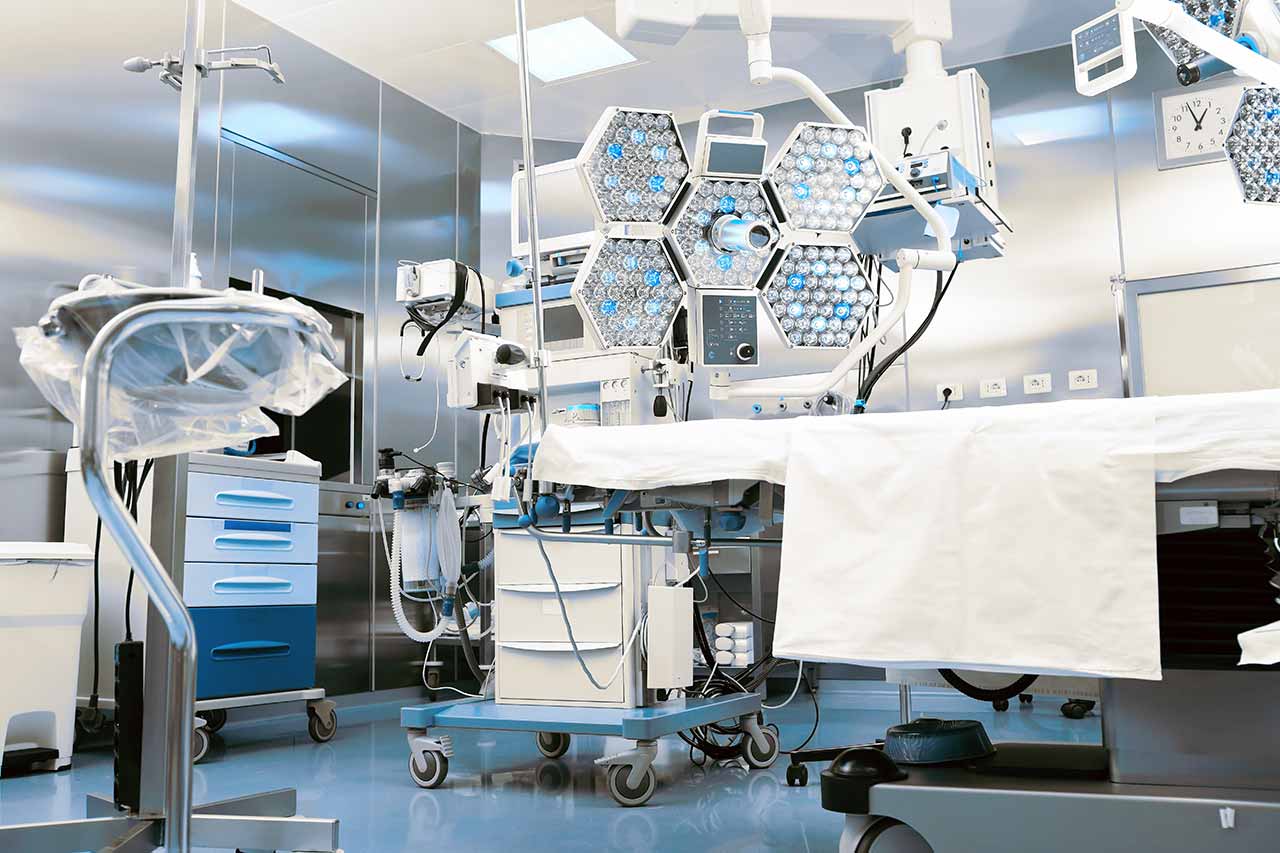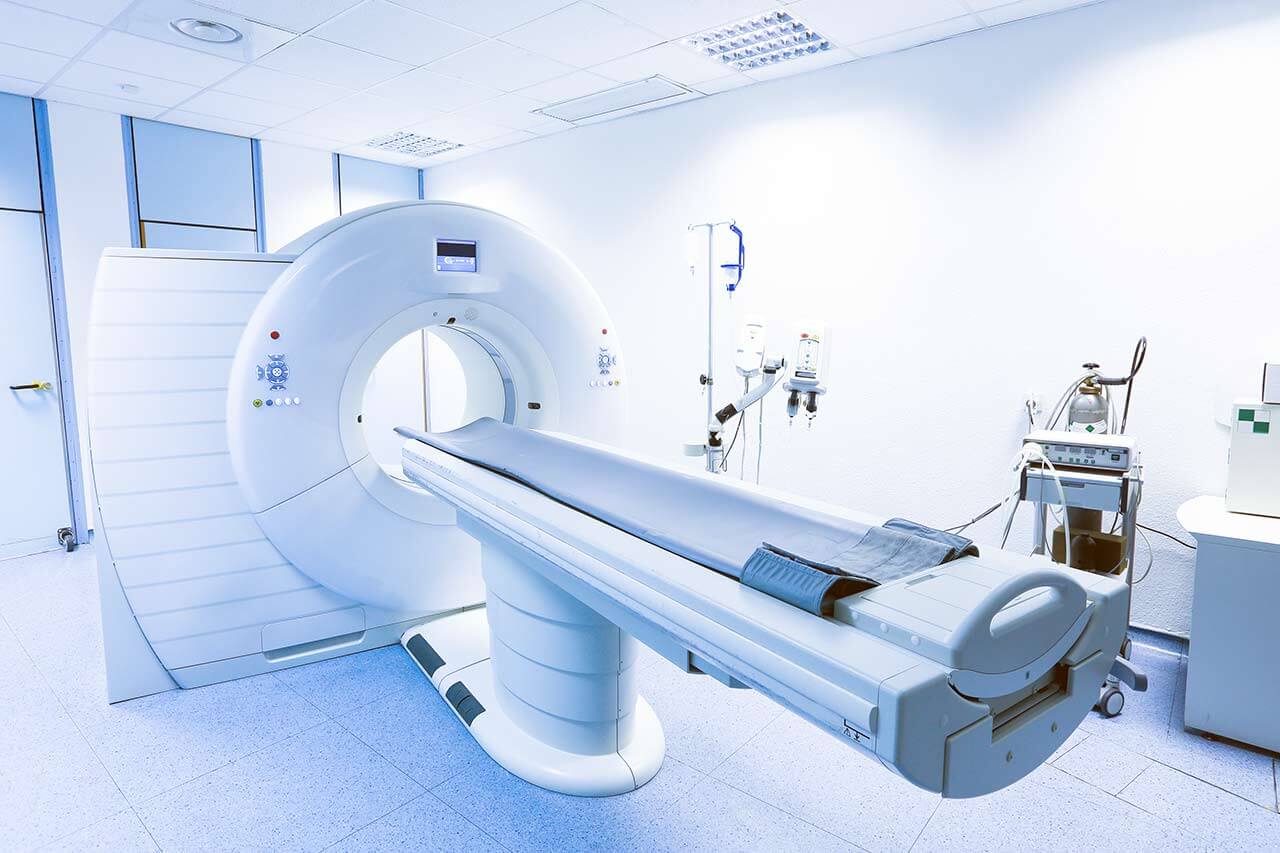
The program includes:
- Primary presentation in the clinic
- medical history, including family history
- complex neurological and orthopedic examinations
- CT / MRI / X-ray examination
- complex neurophysiological examinations
- being in the intensive care unit (if indicated)
- consultation and curating by a neurourologist
- bowel training for stool control
- attracting specialists from other areas
- individual rehabilitation program, which includes:
- artificial lung ventilation (according to indications)
- training of the respiratory musculature (weaning)
- propriozeptive neuromuskuläre fazilitation (PNF)
- transcranial magnetic stimulation (TNS)
- orofacial stimulation of Castillo Morales
- functional propriotrening
- various methods of respiratory gymnastics
- Wii Fit training in the use of the balance
- neuropsychological therapy
- functional therapy of the upper extremities (ArmeoSpring)
- functional electrical stimulation / neurostimulation
- kinesitherapy (physiotherapy)
- biocontrol with feedback
- healing deep muscle massage
- neuromuscular electrostimulation
- acupuncture of spasticity and pain syndromes
- occupational therapy
- psycho-educational classes
- Individual physiotherapy
- microcurrent treatment
- fangotherapy / cryotherapy
- antispasmodic drug therapy (incl. Botox)
- mobilization of limb joints
- hydrotherapy / massage therapy / reflexology
- training on special trainers (Lokomat, exoskeleton)
- and etc.
- day-and-night care nurses
- stay in the hospital with full board
- symptomatic and drug therapy
day-and-night |
Service
You may also book:
 BookingHealth Price from:
BookingHealth Price from:
About the department
The Department of Pediatric Neurology, Epileptology and Early Neurological Rehabilitation at the Hospital Kassel offers the full range of top-class medical services in the areas of its specialization. The department has been carrying out its successful clinical activities since 1974, and therefore it has a wealth of experience in the diagnostics and treatment of neurological disorders in children between the ages of 0 and 18 years. The focus is on the treatment of diseases of the brain and spinal cord, epilepsy, developmental delays and disorders, as well as on the treatment of muscle diseases. In addition, the competence of the department's specialists includes phase B early neurological rehabilitation for children after severe diseases and injuries of the brain and spinal cord, peripheral nervous system. Medical care is provided both on an inpatient and outpatient basis. The clinical work of the department's specialists is certified in accordance with DIN EN ISO standards. Thus, young patients and their parents can count on the effective treatment of neurological disorders in accordance with the very latest medical standards. Great attention is paid to making the child feel as comfortable as possible throughout the entire therapeutic process and not to be afraid of the upcoming treatment. The department is headed by Prof. Dr. med. Bernd Wilken.
When a child is admitted to the department, a neurologist holds a consultation, during which he talks with the young patient and his parents, studies the child's medical history and, if necessary, carries out a clinical examination. The next stage of the therapeutic process is comprehensive diagnostics, which is completed using state-of-the-art medical equipment. The department's therapeutic options include video EEG monitoring, neurophysiological tests (recording of evoked potentials, neurography, myography, magnetic stimulation), ultrasound, CT and MRI scanning, laboratory tests, audiological and ophthalmological tests, etc. The department's experienced psychologists also work with the children. They use various methods and tests to assess the child's cognitive skills, memory, attention, perception, speech, etc. Based on the comprehensive diagnostic data obtained, the attending physician elaborates the optimal treatment regimen. Whenever required, the specialists from related medical disciplines, including neurosurgeons, neuroradiologists and other doctors, are involved in the therapeutic process. If a young patient requires neurological rehabilitation, neurologists and rehabilitation therapists cooperatively determine the particular goals of the rehabilitation program, for example, restoration of movement skills, speech restoration, social reintegration of the child, and appoint the necessary rehabilitation measures, which will help the young patient get rid of the consequences of a neurological disorder or injury.
The department specializes in conservative treatment of diseases of the nervous system in children. Should surgery be required, the doctors from the Department of Neurosurgery will be involved in the treatment process. The pediatric neurologists use highly effective drugs of the very latest generation, which help relieve pain and eliminate the symptoms of pathology, returning the child to normal life. Botulinum toxin injections are successfully used to treat spasticity. In the case of early neurological rehabilitation, the child receives care from the whole team of doctors, consisting of physiotherapists, ergotherapists, speech therapists, psychologists and art therapists. The department's medical team welcomes the participation of the parents in the therapeutic process, since the support of loved ones helps the child to tolerate the treatment more easily. The presence of one of the parents is especially important during neurological rehabilitation. The parents can not only motivate the child to achieve good results in rehabilitation treatment, but also gain invaluable knowledge on further care for the child at home.
The department's specialization includes:
- Diagnostics and treatment of the following neurological disorders:
- Epilepsy
- Headaches
- Movement disorders
- Brain tumors
- Muscle diseases
- Developmental delay and developmental disorders
- Genetic diseases affecting the nervous system
- Sleep disorders
- Metabolic disorders
- Phase B early rehabilitation for children with the following neurological disorders and injuries:
- Acquired brain injuries caused by an accident, inflammatory brain diseases, cerebral hypoxia, cancers accompanied by damage to the nervous system, intracerebral hemorrhage and vascular brain lesions
- Congenital diseases of the nervous system
- Epilepsy
- Diseases of the peripheral nervous system
- Apallic syndrome (unresponsive wakefulness syndrome)
- Other disorders and pathological lesions of the nervous system
The department's range of medical services includes:
- Diagnostics
- Laboratory tests
- Video EEG monitoring
- Neurophysiological examinations
- Recording of evoked potentials
- Neurography
- Myography
- Magnetic stimulation for the functional diagnostics of the nervous system
- Imaging tests
- Ultrasound scanning
- Computed tomography
- Magnetic resonance imaging
- Polysomnography for sleep assessment
- Assessment of cognitive and speech functions in a child
- Treatment
- Drug therapy using modern medicines
- Botulinum toxin injections for spasticity treatment
- Vagus nerve stimulation for epilepsy treatment
- Phase B early neurological rehabilitation
- Physiotherapy
- Speech therapy
- Ergotherapy
- Curative education
- Music therapy
- Pet therapy
- Psychological support for a young patient and his parents
- Other diagnostic and therapeutic services
Curriculum vitae
Since January 1, 2003, Prof. Dr. med. Bernd Wilken has been the Head of the Department of Pediatric Neurology, Epileptology and Early Neurological Rehabilitation at the Hospital Kassel. The specialist received his medical education at the Faculty of Medicine of the Hanover Medical School. He worked as Assistant Physician in the Department of Pediatric and Adolescent Medicine at the University Hospital Lübeck for six years, and in 1994 became a Physician in the Department of Pediatric and Adolescent Medicine at the University Hospital Göttingen. In 1998, he held the position of a Senior Physician at the same hospital, where he worked until 2002.
Prof. Wilken's special clinical interests include the treatment of epilepsy, developmental disorders of the nervous system in children and muscle diseases. The doctor introduced into the clinical practice of the Department of Pediatric Neurology, Epileptology and Early Neurological Rehabilitation at the Hospital Kassel such effective diagnostic techniques as recording of evoked potentials, nerve conduction velocity assessment, and was also the first in the hospital to use magnetic stimulation for the functional diagnostics of the nervous system.
Photo of the doctor: (c) Klinikum Kassel
About hospital
The Hospital Kassel is a progressive medical facility with a huge medical team, which provides high-quality medical services in all branches of modern medicine. The hospital is part of the regional medical Gesundheit Nordhessen Holding, which unites 5 top-class medical centers, including specialized rehabilitation clinics. With 1,281 beds, the hospital is known as the largest medical complex in the federal state of Hesse. The hospital has 32 specialized departments with highly qualified doctors and specially trained nursing staff in each department. The team of 3,200 employees takes care of the health of patients. The main value for each employee is the patient's health. The professional skills of the medical staff in combination with state-of-the-art medical and technical equipment of the hospital provide excellent opportunities for the treatment of patients with pathologies of any severity.
The hospital provides treatment to over 55,000 inpatients and about 140,000 outpatients every year. Medical care is provided to both German citizens and many patients from foreign countries. Such high rates are the evidence of excellent quality of medical services and the high credit of patients' trust.
The hospital has created a wonderful atmosphere, which contributes to the rapid recovery of patients. All diagnostic and therapeutic rooms, operating rooms, as well as patient rooms are designed taking into account modern standards of European medicine in order to ensure maximum comfort of each patient. All employees working in the hospital provide the patient with understanding and respect, as well as support him in every possible way during the entire therapeutic process.
The hospital successfully implements a quality management system. It uses its own quality management system implemented by the medical Gesundheit Nordhessen Holding, as well as the IQM (Initiative Qualitätsmedizin) monitoring system. As part of healthcare quality management, the hospital annually clearly provides reports on its clinical activities, the success of diagnostics, treatment, level of patient care, etc. Thus, the hospital stands for maximum openness in its work and makes every effort to maintain the highest level of quality of medical care.
Photo: (с) depositphotos
Accommodation in hospital
Patients rooms
The patients of the Hospital Kassel live in comfortable single, double and triple rooms. The patient rooms are made in a modern design and pastel colors. A standard patient room includes an automatically adjustable bed, a bedside table, a wardrobe, a table and chairs for receiving visitors, a TV and a telephone. The patient rooms have Wi-Fi. Each room has an ensuite bathroom with shower and toilet.
The hospital also offers enhanced-comfort patient rooms. Most of these rooms have a balcony. The bathroom additionally includes a hairdryer, towels and toiletries.
Meals and Menus
The patient and the accompanying person are offered tasty and balanced three meals a day. If for some reason you do not eat all foods, you will be offered an individual menu. Please inform the medical staff about your food preferences prior to treatment. The patients staying in enhanced-comfort rooms are provided with an individual menu every day.
The hospital also has several cafes where one can have a cup of tea or coffee, taste delicious pastries, salads, main hot dishes, pizza, etc.
Further details
Standard rooms include:
Religion
The religious services are available upon request.
Accompanying person
During the inpatient program, the accompanying person can live with the patient in a patient room or a hotel of his choice. Our managers will help you choose the most suitable option.
Hotel
During an outpatient program, the patient can stay at the hotel of his choice. Our managers will help you choose the most suitable option.





